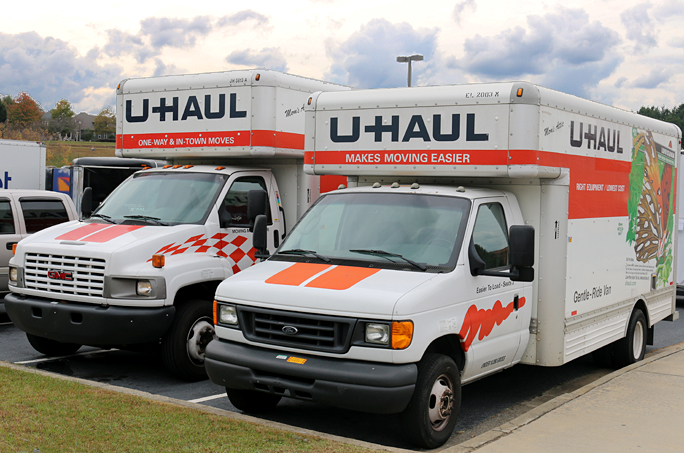Note: This article pertaining to What You Should Know About Moving Your Belongings On Your Own was originally published on Sunday, October 25, 2015 at 7:28 in the evening and has been updated.
Moving can be quite a stressful and traumatic experience in and of itself when the move is local, whether or not you decide to hire a moving company or implement the move yourself — but what if you are moving from one state in the United States to another? Now you have to think about travel, fuel, meals, and other expenses.
What You Should Know About Moving Your Belongings On Your Own.
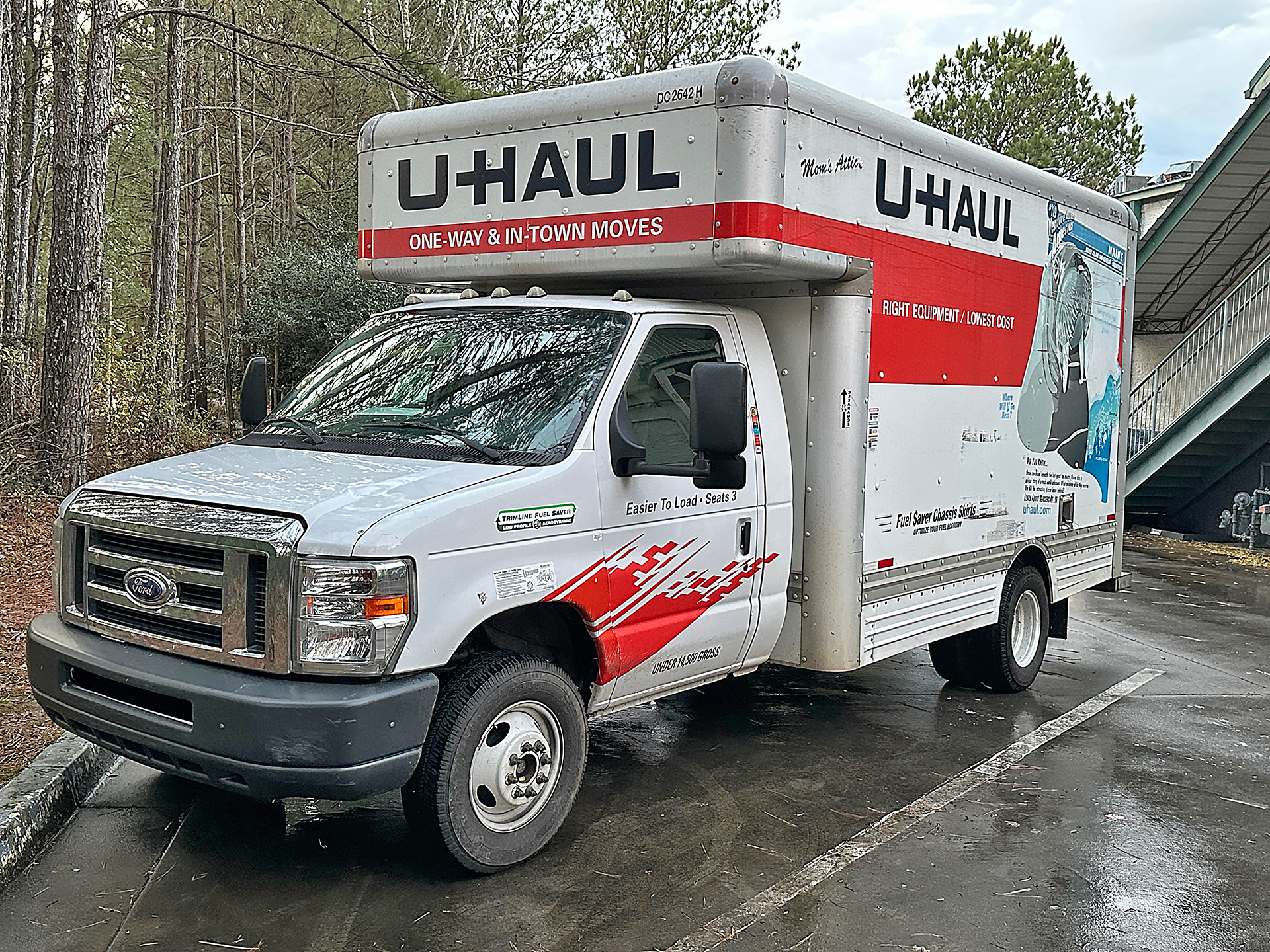
You could hire a moving company, of course — but you really need to do your homework to avoid the horror stories some customers have experienced with lost or damaged belongings; or having items held hostage unless you agree to pay a rate usuriously higher than the one which you agreed to pay.
Hiring a moving company that is indeed reputable to take care of the move for you can be a huge burden about which you do not have to think — especially if you are moving enough belongings to fill an entire house — but the process of hiring a moving truck versus renting a truck yourself for moving could arguably be equally as arduous.
This article will generally focus on moving enough belongings to fill a room or two within the United States, as I have no experience in moving internationally; but I am hoping that the advice and tips I impart here will help you — no matter to wherever you plan on moving.
I had volunteered to handle the move for someone whose apartment was located in a state different from the one in which I am based; as well as for friends of mine who are local to where I am based. From those and other experiences, here is a list of what you should know about moving your belongings on your own — or even helping with the moving of the belongings of someone else — without hiring movers to do the move for you.
Renting a Truck and Renting a Car are NOT the Same Experience.
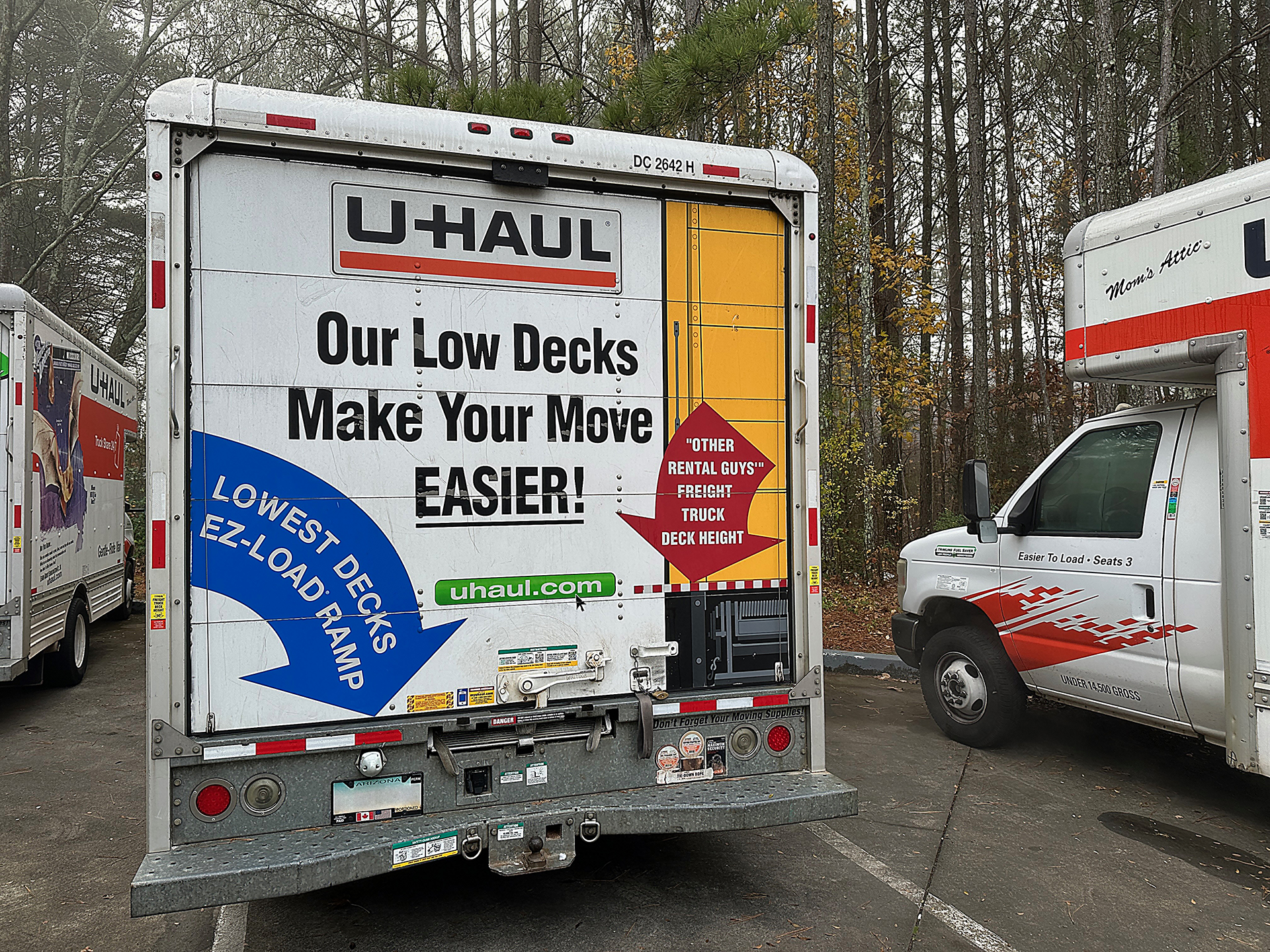
First, dispel the idea that renting a truck is the same experience as a typical car rental. It is not.
No shuttle bus is available to take you to your vehicle; and typically no fast track to an aisle is available where you can choose your vehicle — nor will you have a vehicle awaiting your arrival where you can just hop in and go. You will most likely have to stand in line with the other “peasants” — I use that word tongue-in-cheek — to get your rental processed. If you are fortunate, no one will be ahead of you in line — but expect the process to still take at least 20 minutes.
Insurance coverage is different on renting a moving truck versus a typical rental car. You most likely will not earn frequent travel loyalty program points or miles unless you use an affiliated credit card.
Check the Competition.
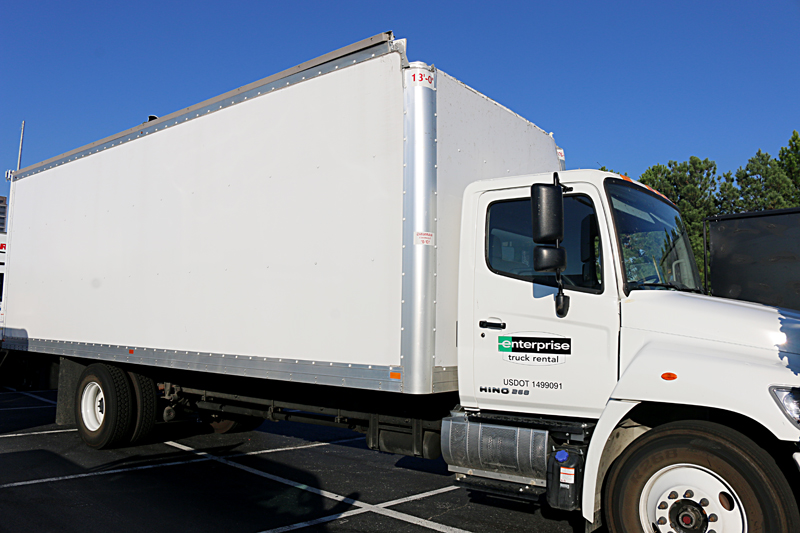
I could choose from U-Haul, Ryder, and Penske. Budget and Enterprise are rental car companies that do rent moving trucks as well — but again, the rules and processes are different with moving trucks than with vehicles of their rental car businesses.
Pricing of trucks is based on availability — believe it or not — and availability is based on timing and inventory. There is no one company which was consistently less expensive than the other.
Also, do not believe those low prices of $19.99, $29.99, or $39.99 for a truck if moving locally. Before you get to your estimate, you will be bombarded with sales pitches for everything from supplies to roadside assistance to storage facilities to hiring helpers to help you with your move.
Even if you purchase nothing extra, you will likely be hit with a mandatory environmental fee starting at one dollar, to which U-Haul attributes:
All U-Haul Vehicle rentals are subject to an environmental fee used to support and foster the development and maintenance of sustainable U-Haul business operations. For example, operations that directly benefit our customers include, but are not limited to, the use of aerodynamic fuel-saving truck skirts, the fuel economy gauge, CNG and propane trucks, storage re-use centers, and an expanding alt-fuel propane infrastructure. The fee also partially covers operations that indirectly benefit our customers, such as energy-efficient lighting and HVAC retrofits, waste-oil heaters, water recycling units, van-body storage units, permeable ground cover and other water/energy saving projects.
You may also be automatically charged a mandatory “Vehicle License/Cost Recovery Fee” of $1.60 — or more — of which U-Haul explains:
Department of Motor Vehicle departments (DMV) through their state legislatures allow U-Haul company (rental companies) to charge a fee to recover a proportionate amount of costs incurred to register and license rental vehicles.
Although those fees are minuscule, I do not understand why they are simply not included in the rate of the vehicle. Increase the rates of the trucks instead so the consumer better knows what to expect in terms of costs. Not including those fees is false advertising, in my opinion; so expect to at least pay those fees at a minimum.
The costs really add up if moving from one state to another. With U-Haul, expect to pay a minimum of $1,120.00 for the smallest moving truck from Georgia to New York as an example. All that price includes is having the truck for up to five days and 1,049 miles. You will still be bombarded with sales pitches until you get to the estimate. Taxes increase the total cost of that example to $1,205.35.
For those reasons, it is critical that you thoroughly research your options — and be wary of the “small print” which could snag you in the end.
Scrutinize Truck Rental Rates and Compare Features.
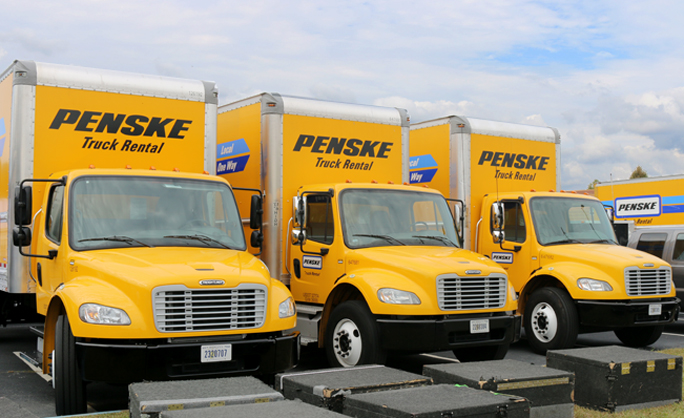
Depending on the type of move you are about to do can depend on what you pay.
Even though the following examples are from 2016, it is still pertinent in 2025: suppose you want to pick up a truck in Dallas in Texas on Wednesday, January 13, 2016 and return it in Nashville in Tennessee on Monday, January 18, 2016. You can pay $363.60 and get free unlimited mileage with a truck either 12 feet or 16 feet in length for the same price with Penske Truck Rental; whereas a rental truck with U-Haul will cost you $660.00 for a smaller truck only ten feet in length — but you only receive 787 free miles, not unlimited miles; and the truck must be returned a day earlier on Sunday, January 17, 2016.
Which would you choose for your one-way rental, based solely on cost?
If the rental is a local rental — let us use Fort Lauderdale as an example, to be rented on Wednesday, January 13, 2016 and returned the next day — you can pay $48.99 plus 93 cents per mile with a truck either 12 feet or 16 feet in length for the same price with Penske Truck Rental; whereas a rental truck with U-Haul will cost you $34.95 for a smaller truck only ten feet in length 0r $44.95 for a truck fifteen feet in length — but the cost per mile is 89 cents.
Now which would you choose for your one-way rental, based solely on cost?
Additional items — such as supplies, insurance coverage, and a refundable deposit — can throw more vagaries into these sample equations; so you must do exhaustive research to ensure that you are indeed getting a good deal on your truck rental.
Also, consider aspects of the physical truck itself: as one example, will loading and unloading items be easier from one model to another? Is the truck equipped with a built-in ramp?
Consider Purchasing Insurance — Or, More Accurately, a Waiver.

Credit cards generally do not include coverage for rental trucks for moving — even though they do provide coverage for typical vehicles from a traditional rental car company.
Check the primary coverage of your insurance on your automobile. If you only have basic insurance, chances are you will not be covered for any damage to a rental truck. If you are insured beyond the basic insurance, consult with your insurance provider to see if your policy will cover damage to rental trucks — and expect the answer to be highly unlikely.
Companies such as U-Haul could “scare” you into purchasing insurance — or, more accurately, purchasing a waiver of your responsibility for any damages that have incurred onto the vehicle. Read the last option pertaining to immediate reimbursement as a result of damage…
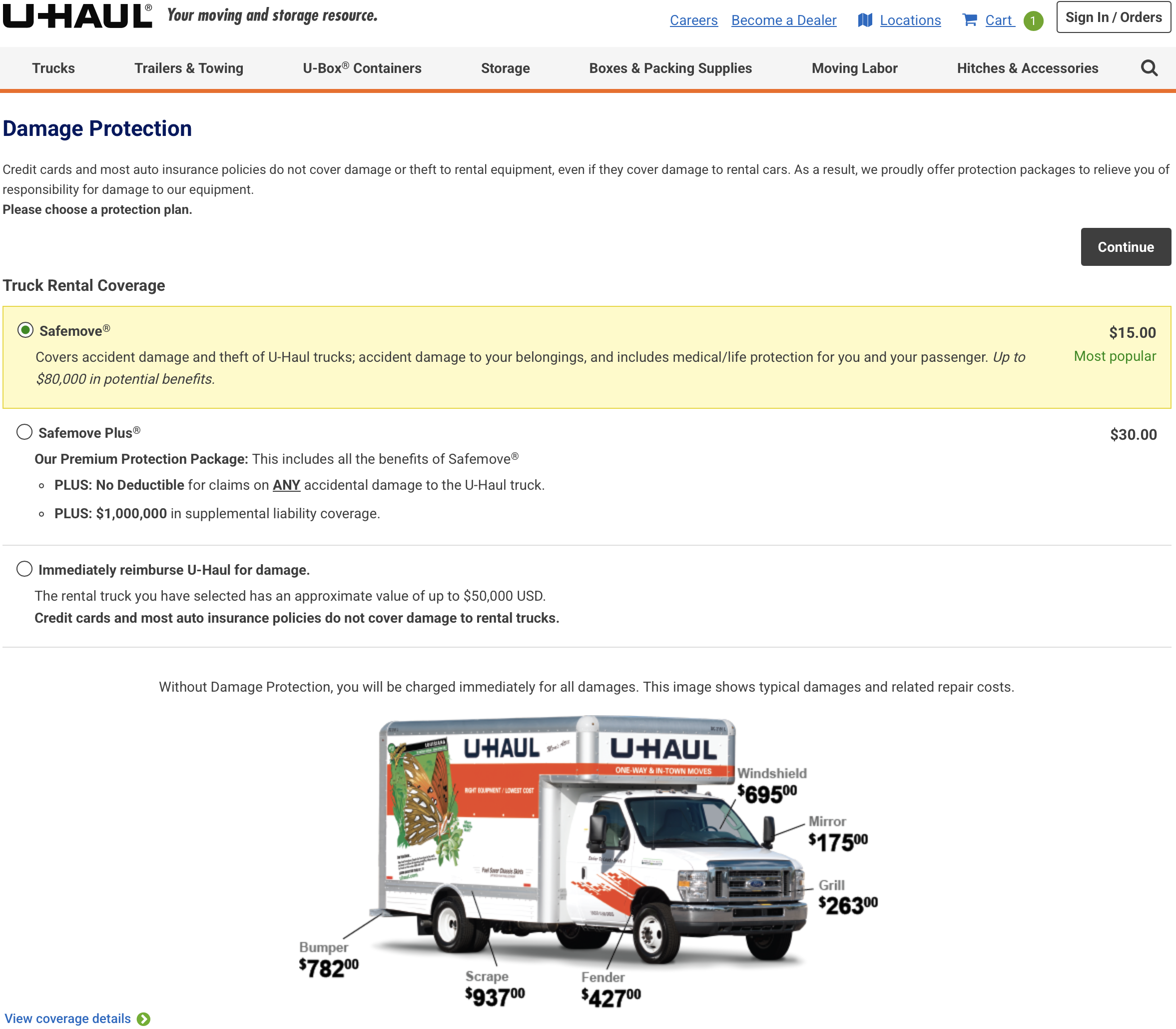
…and that one of those trucks would be worth up to $50,000 in 2025 may be difficult to believe — it was worth up to “only” $25,000.00 in 2015 — but that is what they say, according to the graphic shown above.
I have never been involved in an accident while moving with a rental truck — but that does not mean that I will never be involved in an accident. All it takes is one time for an accident to occur — and when it does occur is not the time to figure out that perhaps I should have paid for additional insurance coverage.
One example of damage that occurs more often than one might think is having the top of the truck sheared off, as shown in the photograph of the Enterprise truck earlier in this article. One cause of that is low overpasses — such as this infamous one in Durham in North Carolina or this one in Zanesville in Ohio.
Extra insurance coverage can be declined, as it is typically an option and not required — but then you are responsible for any costs associated with damage inflicted upon the rental truck, as shown in the aforementioned graphic. I would not be the least bit surprised if the trucks of renters who forego insurance are inspected and scrutinized more than other customers who pay extra for the supposed peace of mind.
As with rental vehicles, ensure that you photograph — and perhaps even video — the interior and exterior of the truck as much as possible before you leave the facility when the rental begins. Doing so is especially important if you choose not to purchase insurance — or, more accurately, a waiver of your responsibility for any damages — and ensuring the reading of the fuel gauge and odometer prior to the start of the rental.
Are Your Belongings Covered by Insurance? Probably Not.
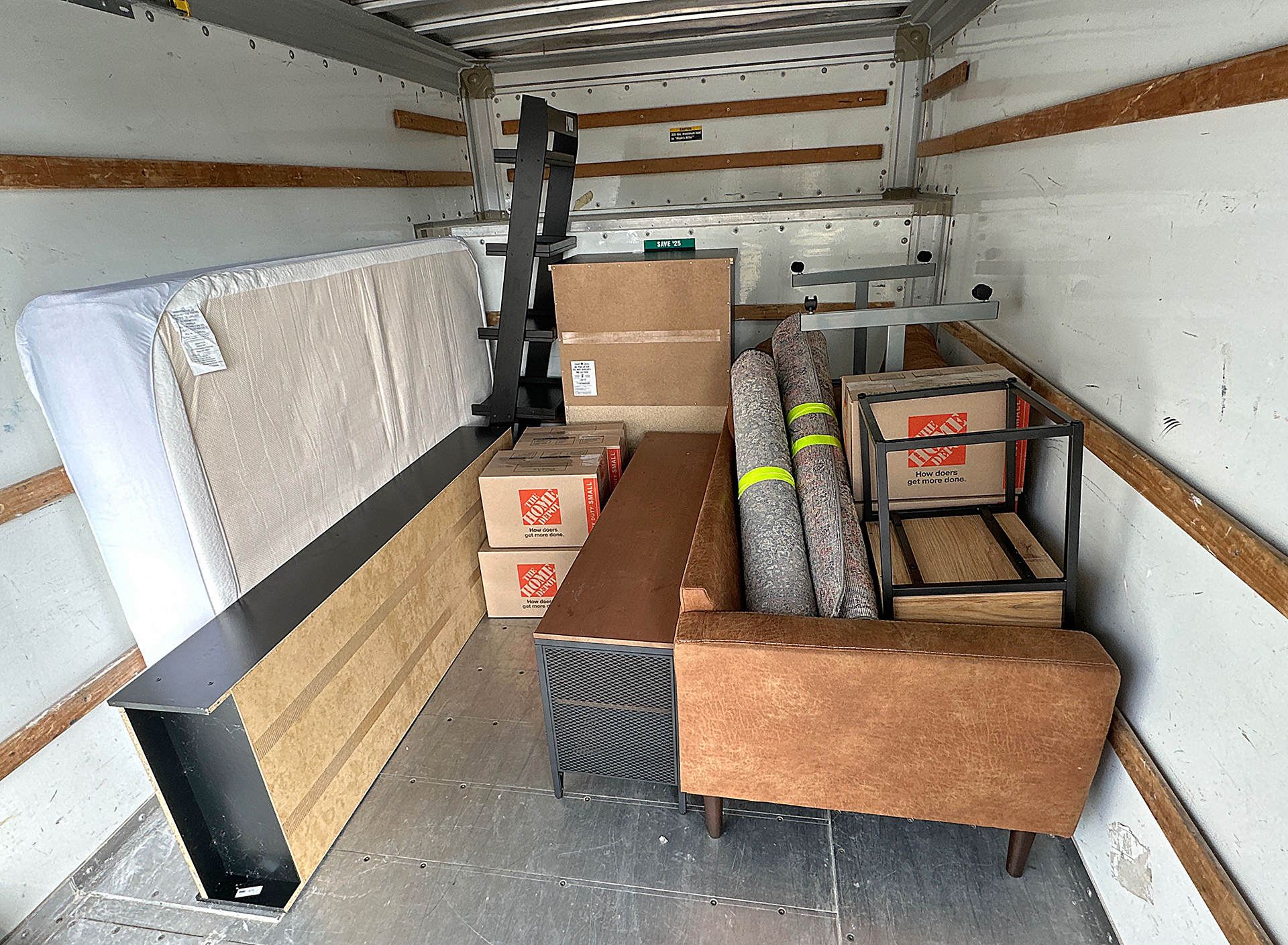
The coverage for a rental vehicle which you purchase will likely apply only to the vehicle and not to the items that you are moving inside of the moving truck. Check the specific terms and conditions of the policy if you already have homeowners insurance or renters insurance, as you might have some protection — otherwise, you may need to purchase additional coverage for cargo to ensure that your belongings will be insured. Many insurance policies do protect belongings that are away from home.
Keep in mind that insurance to protect cargo that is obtained through a company that rents moving trucks usually limits the amount of coverage — so your belongings may not be completely covered anyway — and you are likely to pay a deductible in the event that damage occurs during the move. Also, coverage for cargo typically pays for only the actual cash value of your items — so if an older item is damaged during the move, it will likely be replaced with a similar item of approximate equal value and not with a new version of that item.
One bright spot is that even though your automobile insurance will possibly not cover a moving truck, it will likely cover your personal vehicle if it is being towed by that moving truck. Any damage to your personal vehicle on your way to your new home should be covered as long as you have collision insurance or comprehensive insurance. Still, check the specific terms and conditions of the policy to ensure peace of mind.
Consider Your Travel Options.

In the move from one state to another, I decided to purchase a one-way airfare — but before doing so, I wanted to check my options. Believe it or not, the lowest rate I found for a rental truck was also the most convenient. For that particular move, I chose Penske Truck Rental because I can pick up the rental truck at a participating Home Depot location — and not only was there one located within a 45-minute walk from the destination airport where I could pick up the truck; but there was also one within walking distance from where I am based. That beats having to figure out transportation on how to get to either the origination or destination rental locations in terms of time and money — and I enjoy walking, so I received a nice exercise as a bonus…
…and because both locations were within walking distance, I was able to maximize the amount of time I needed to rent the truck. I did not have to worry about transportation options, distance, or traffic.
Do You Really Need Those Supplies?

Because I had some large pieces of furniture to move in some cases, I knew I would need a hand truck. However, because I knew that I already had an ample supply of linens such as blankets and towels, I did not need furniture pads. I knew empty boxes were available at both domiciles from which the items were to be moved, so I did not need to purchase boxes; but in the past, I have been able to get used boxes at supermarkets and other stores for free. If you can arrange this, do not purchase boxes.
Choose your supplies and ancillary moving equipment carefully, as they could quickly add up in terms of cost — and you do not want to pay for something you wind up not using anyway.
Also, keep in mind that extra charges lurk when you rent supplies and ancillary moving equipment. For example, if you rent five blankets, you had better ensure that you return all five blankets — or you could be charged for any missing blankets. If a hand cart is damaged, you may be liable for that damage.
If possible, you are better off securing your own supplies and ancillary moving equipment — especially if you already own them; and certainly if you plan on using them after the move has been completed.
Research Discounts to Apply to Your Rental.

Affiliations with organizations are one way to possibly secure a discount on the cost of your truck rental. For example, if you are a member of the American Automobile Association, your membership can be applied towards up to a discount of 20 percent on your truck rental with such companies as Penske Truck Rental.
Other discounts which may be available with Penske Truck Rental are a discount of ten percent for college students and discounts for military personnel.
If you cannot find any discounts or affiliations pertaining to a lower cost rental at the official Internet web site of the rental truck company, it never hurts to call and ask. You just might be surprised.
Consider Renting From a Traditional Rental Car Company.
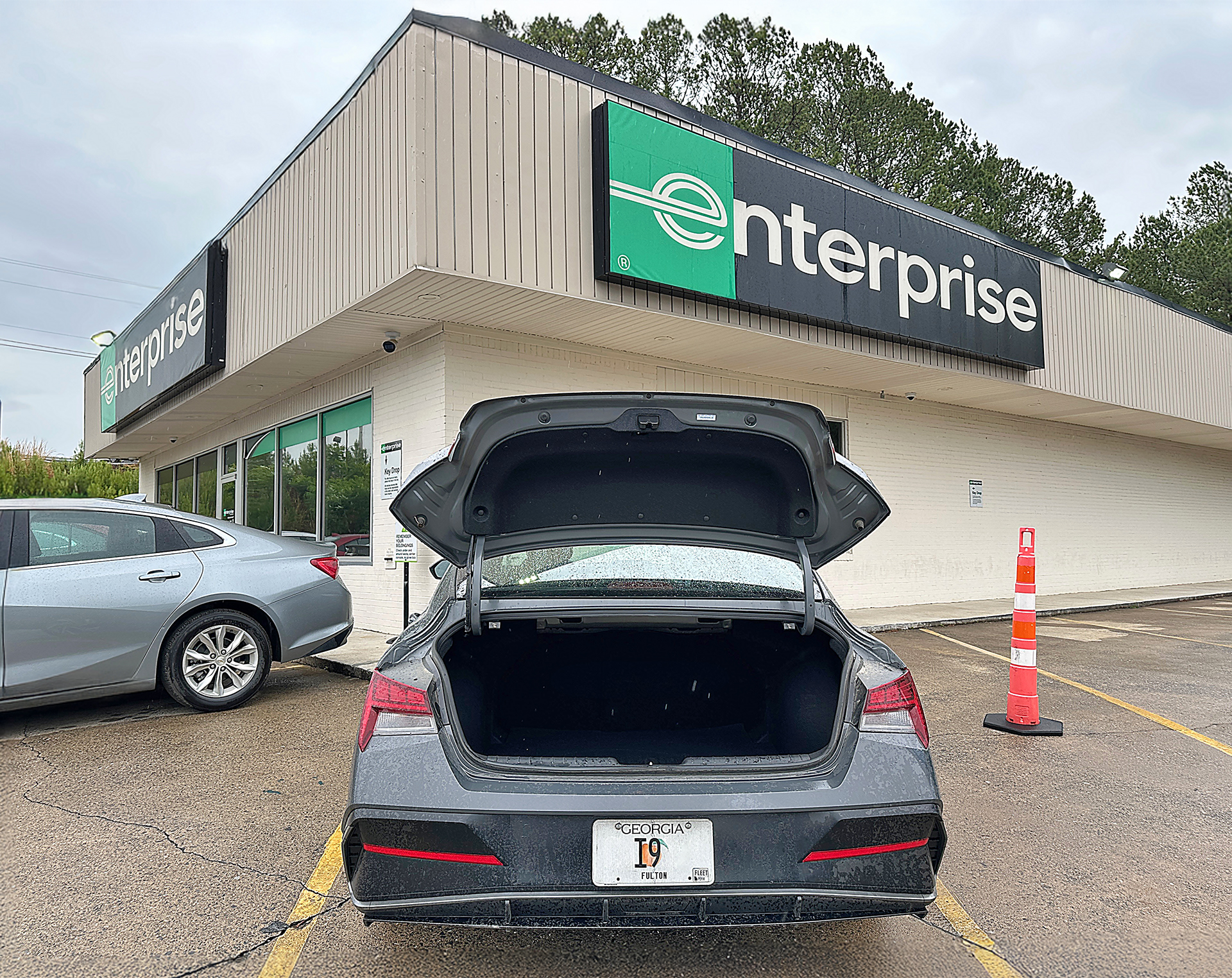
Depending on your situation, you may not need a moving truck. When no heavy or bulky furniture is involved, you just might be able to rent a van or a minivan from a traditional car rental facility — especially if you are renting locally and do not mind possible multiple trips to move everything.
While the following experience is more of the exception than the rule in terms of upgrades, I once rented a full-size car to move some items despite being concerned that it might — just might — not be large enough. When I arrived at the counter, the agent practically begged me to take an oversized van instead for no extra charge. I never did understand why; but I cannot tell you how repeatedly thankful I was while I was loading it, realizing that the original car class I reserved would not have sufficed and was therefore a mistake on my part.
The grand total cost of renting that oversized van was $47.14 for three whole days — including all taxes and fees.
Yes — I seriously lucked out BIG time. The “secret” is to keep track of the calendars of the rental car industry, as companies are usually trying to entice renters to rent vehicles one-way into or out of a state — although this is not anywhere near the bargain that it was ten years ago.
Again, that is a notably rare exception; but some rental car places may have vehicles which may be large enough to handle a move — even if you may have to go back and forth several times in order to move all of the items from one place to another, which would actually work better on a local rental than a long-distance rental…
…and you might qualify for discounts, elite level status perks, unlimited mileage, and credits to the frequent renter membership program with that rental versus renting a moving truck. Additionally, purchasing insurance coverage may not be required for this type of rental, as you may already be covered by either your primary automobile insurance policy; or by the credit card you use.
Returning the Moving Truck.
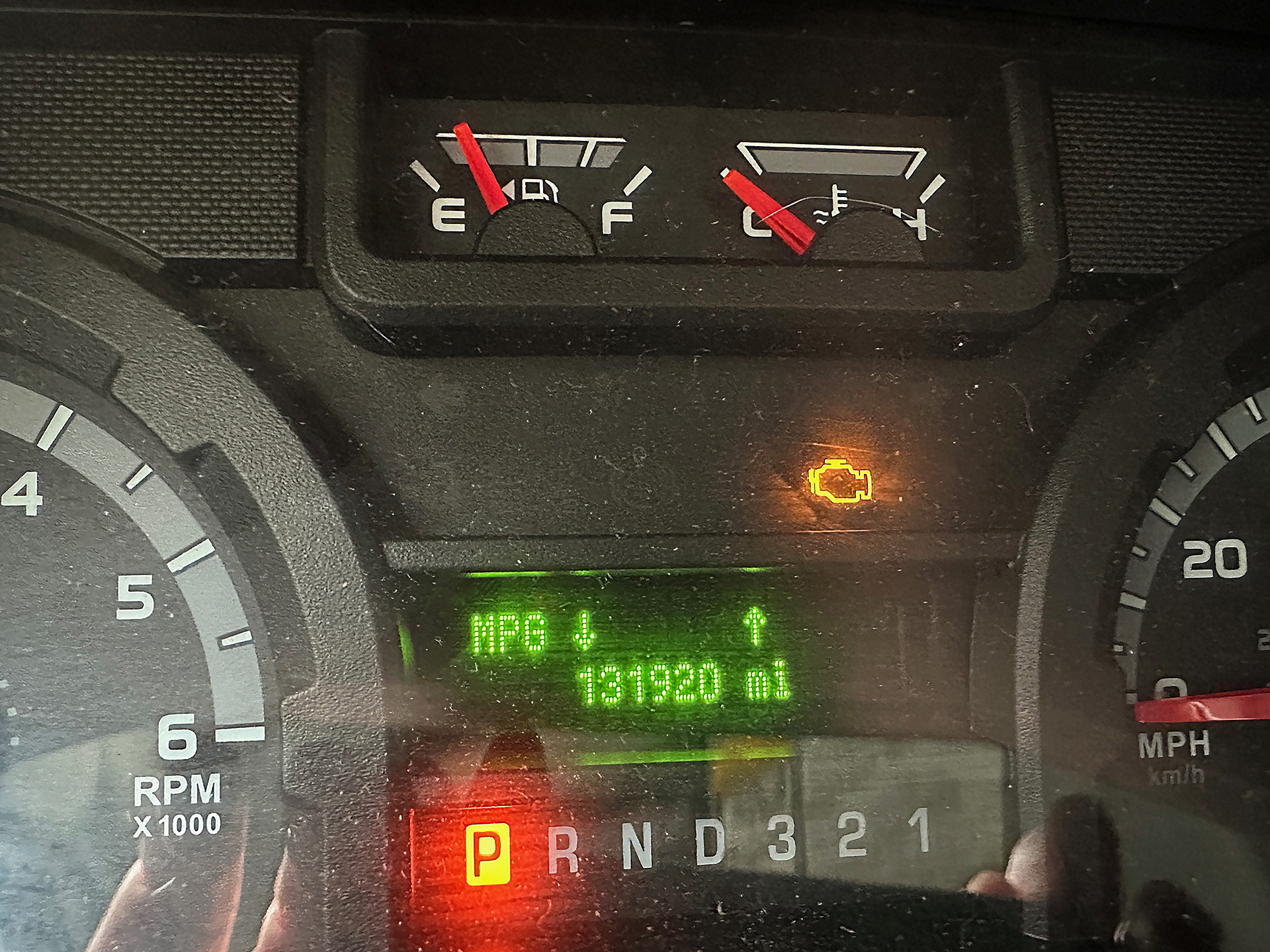
Once again, as this is worth repeating: as with rental vehicles, ensure that you photograph — and perhaps even video — the interior and exterior of the truck as much as possible prior to returning it at the conclusion of the rental. Doing so is especially important if you choose not to purchase insurance — or, more accurately, a waiver of your responsibility for any damages — and avoiding unwarranted charges for fuel and for extra mileage.
Also check and scrutinize the paperwork of the final bill. Imagine the surprise of my friend when his bill totaled $254.42 instead of the initial $39.99 to rent a moving truck. He contacted me via e-mail message in disgust, claiming that he “got screwed” by the truck rental company when an additional $88.83 was added for 20.9 gallons in “fuel sales” — plus a fuel fill-up service fee of $30.00.
Wait a minute: that he was being charged 79 cents per mile driven in the truck was bad enough, plus the equivalent of $4.25 per gallon of gasoline — but to also be charged $30.00 simply to fill the truck up?
Does filling up a fuel tank really take $30.00 worth of resources to accomplish? If not, I will run out right now to a busy gasoline station and offer to fill up people’s vehicles at $30.00 a pop, as I could become wealthy in no time.
Let’s see…filling a fuel tank in a vehicle usually takes fewer than ten minutes…times six vehicles per hour at $30.00 per hour for eight hours. If my math is correct, that is $180.00 per hour and $1,440.00 per day; $7,200.00 per week and $360,000.00 per year — not including the two weeks I reserved for myself for unpaid vacation time…
…but I digress, as usual: what you just read pertaining to the experience of my friend occurred in 2015; so you can expect the costs to be higher in 2025.
By ensuring that you have all receipts that are related to costs for the moving truck during your rental — such as for fuel, for tolls, and for parking as three of numerous examples — you have a better chance of either contesting or avoiding usurious charges being added to your final bill.
Final Boarding Call
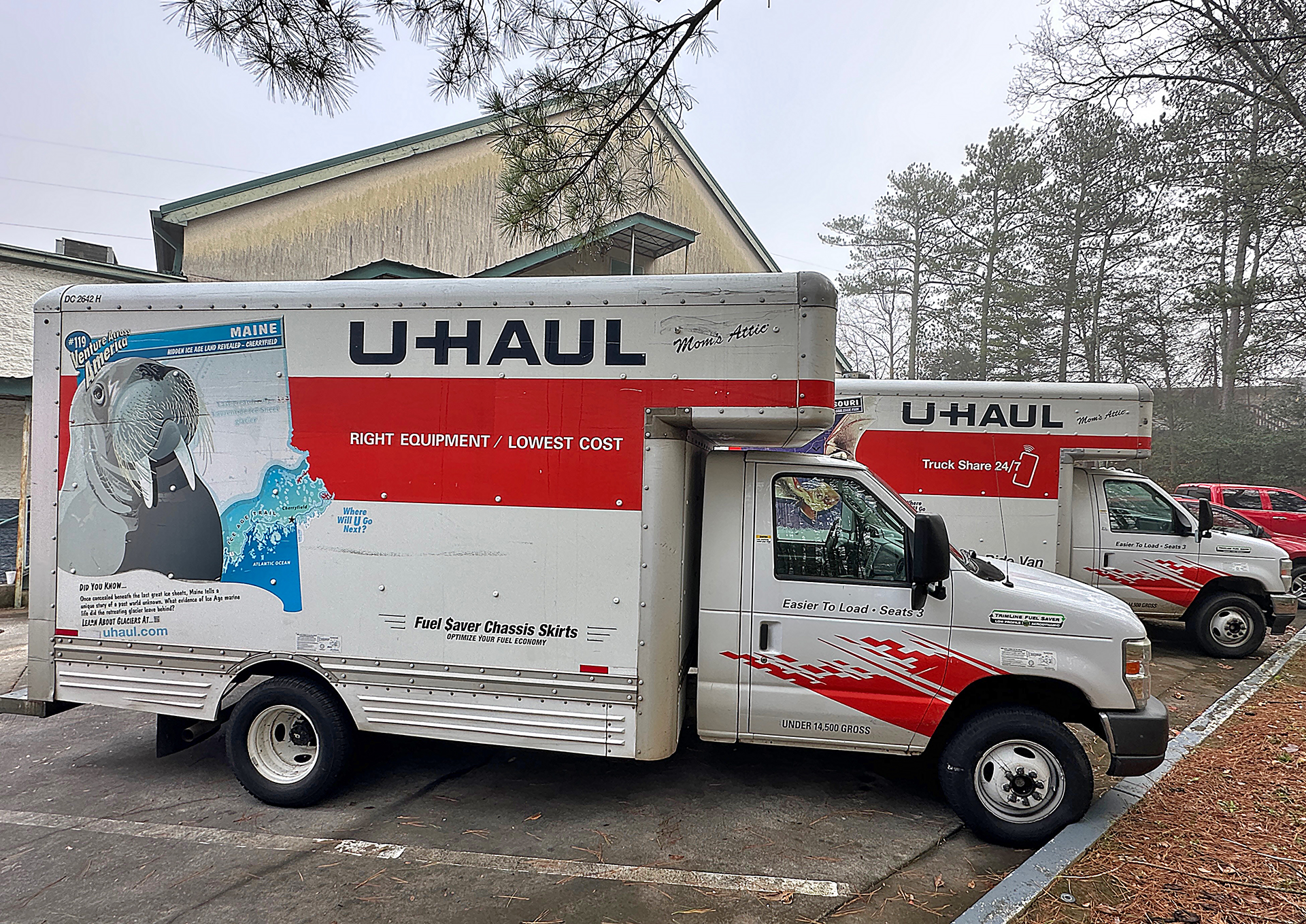
This is not meant to be a truly comprehensive guide on what you should know about moving your belongings on your own — for example, please refer to this article for tips and advice pertaining to packing for a move — as too many variables exist to classify anything as a definitive steadfast rule; but rather it is designed to let you know some of the significant impediments you will most likely encounter when moving with a truck which you rent…
…and as you become more involved in the process, a traditional car rental will seem like a virtual “cakewalk” in comparison.
Much of the advice that was given in this article pertaining to the 13 tips on what you can do to prevent from being scammed by a rental car company can be applied to renting trucks for moving.
Once you have done your homework and actually rented the truck — the process does get easier…
…that is, if you do not include the actual move…
All photographs ©2015, ©2016, ©2024, and ©2025 by Brian Cohen.
